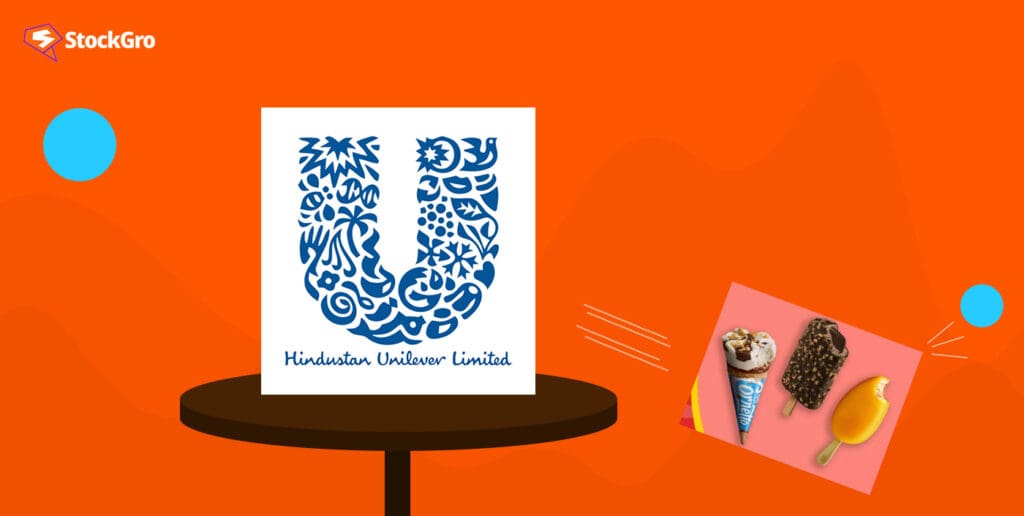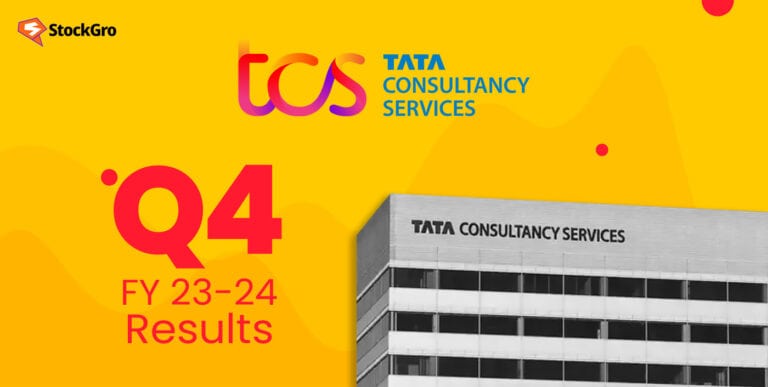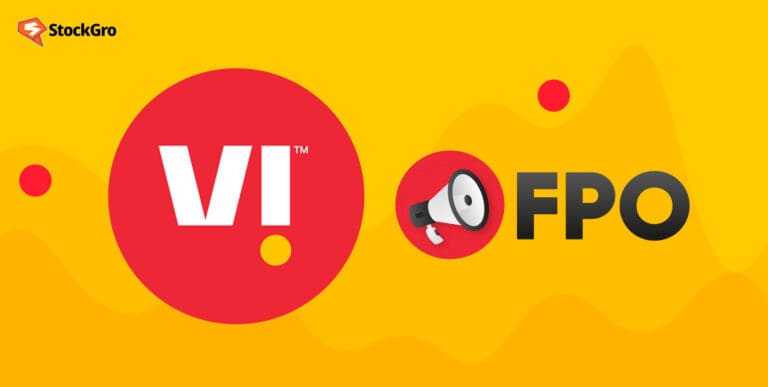
Ever wondered what powers the shelves of your favourite grocery store? That’s Hindustan Unilever Limited (HUL) for you—a giant in the world of fast-moving consumer goods. However, the company has set the stage for a major shake-up with its recent announcement of an organisational shift through a strategic move.
Keep reading to understand how this restructuring could impact HUL’s share price and your investment portfolio.
About Hindustan Unilever
Hindustan Unilever Limited (HUL) is a Mumbai-based final goods corporation and is a subsidiary of the British company, Unilever. Foods, drinks, cleaning supplies, personal hygiene items, water purifiers, and various other fast-moving consumer goods (FMCGs) are among its product lines.
This 90-year-old company, Hindustan Unilever Limited, is the biggest FMCG enterprise in India. India accounts for the bulk of the company’s sales, and it has production plants all around the nation. It dominates almost 90% of its business segments.
They have a diverse and robust portfolio of 50+ brands in 16 fast-moving consumer goods categories; these brands are essential to the daily lives of millions of Indian customers. As a division of Unilever, HUL is a global powerhouse in the food, wellness, home care, and refreshment industries, operating in more than 190 countries across the globe.
According to Forbes’ 2014 ranking of the world’s “Most Innovative Companies,” the company came in at the top of the list. The 2013 Forbes India Leadership Awards also bestowed the title of “Conscious Capitalist of the Year” on it. Unilever was ranked fourth among India’s Most Respected Companies by Business World in 2013.
HUL announces a major restructuring: Hindustan Unilever’s ice cream business spin-off
Unilever, the parent company of Hindustan Unilever, intends to launch a new cost-cutting programme by spinning off Unilever’s ice cream division into a separate company. The company has stated that they expect the relocation to be complete by the end of the year.
The new approach is anticipated to result in savings of around $869 million for the Magnum ice cream producer over the following three years. In addition to affecting an estimated 1.2% of the company’s revenue, the changes are expected to affect about 7,500 office-based employees. HUL shares surged by over 6% as investors approved the proposal on April 9, 2024.
This company has a global base and penetration in both the in-home and out-of-home marketplaces. Its ice cream brands, namely Wall’s, Magnum, and Ben & Jerry’s are among the top brands worldwide.
The goal of the board of directors is to turn Unilever into a high-growth, high-margin company that loyally serves the interests of all its stakeholders.
This is a major declaration from Hein Schumacher, who took over as CEO in July and, after acknowledging Unilever had performed poorly in the past few years, put out goals to streamline the company and win back shareholder trust in October.
Also read: Fast-Moving Consumer Goods (FMCG) Sector- A Safe Haven in Bear Markets?
Current financials
HUL’s share price on NSE India was trading at ₹2,263.50, as of April 10, 2024.
| Metric | Value |
| Market capitalisation (₹ Cr.) | 532,299 |
| Book value per share (₹) | 214.10 |
| Dividend Yield | 1.73 |
| ROCE | 26.6 % |
| ROE | 20.11% |
| PE TTM | 51.57 |
Competitors of HUL
Here are some of the top competitors of HUL and a brief outlook on their financials:
| Company | Market capitalisation (₹ Cr.) | ROE (%) | ROCE (%) | TTM PE |
| Godrej Consumer | 125,136.95 | 12.34 | 16.5 | 70.11 |
| Dabur India | 89,487.98 | 19.02 | 22.7 | 50.10 |
| Colgate | 71,057.61 | 61.00 | 79.1 | 56.39 |
| Marico | 66,199.78 | 34.27 | 41.9 | 45.19 |
Also read: Colgate India results for Q3 FY24: A smiling or frowning stock?
Shareholding pattern of Hindustan Unilever
The shareholding pattern (as of December 2023) of Hindustan Unilever is as follows:
| Promoters | 61.9% |
| Foreign Institutional Investors (FIIs) | 13.65% |
| Domestic Institutional Investors (DIIs) | 12.38% |
| Public | 12.08% |
Investing in HUL
Pros
- Leader in FMCG classes:
When it comes to fast-moving consumer goods (FMCG), HUL dominates the Indian market. For the vast majority of product categories in which it participates, its brands rank among the top two concerning market share. Thanks to their robust advertising and marketing campaigns and vast distribution networks, these companies have been at the forefront of their industries for decades.
Merging with GlaxoSmithKline Consumer Healthcare Ltd. (GSKCH) improved HUL’s position in the food and beverage sector and diversified the company’s income streams in the medium to long run.
- Strong financial position:
An impressive return on equity (ROE) of 20.11% indicates that HUL has been effectively turning its shareholders’ equity into profits.
Thanks to its excellent operational efficiency and profitability, the company has a ROCE of 26.6%. Using this indicator, you can see that HUL’s capital investments are paying off well.
- Low debt burden:
A significant advantage of HUL is that they are almost debt-free. Investors have less financial risk since the company has few financial commitments and does not rely substantially on borrowing funds from additional sources.
With an interest coverage ratio of 128.61, HUL has sufficient funds coming in to cover its interest payments. Investors should rest easy knowing the corporation can handle its debt with this kind of solid financial footing.
Cons
- A higher ratio of price-to-earnings:
A price-to-earnings (PE) ratio of 51.57 indicates that the share price is expensive compared to the company’s earnings. Although the sector PE is 59.85, a high PE ratio can indicate that the stock price is excessively high and might not be sustainable in the long run.
- Exposure to fierce competition:
Across sectors and products, India’s FMCG market has both organised and unorganised competitors. HUL’s market share and pricing methods may be impacted by this intense competition.
Moreover, since the FMCG industry is price-sensitive, HUL has to stay ahead and provide higher value while keeping competitive pricing to retain its position in the market.
Also read: India’s food retail revolution: Growth, trends, and insights
Conclusion
For investors looking to diversify their portfolios, Hindustan Unilever Limited (HUL) presents an attractive proposition. While its high valuation and premium pricing may raise eyebrows, the company’s brand equity, operational efficiency, and innovative spirit position it for continued growth.

